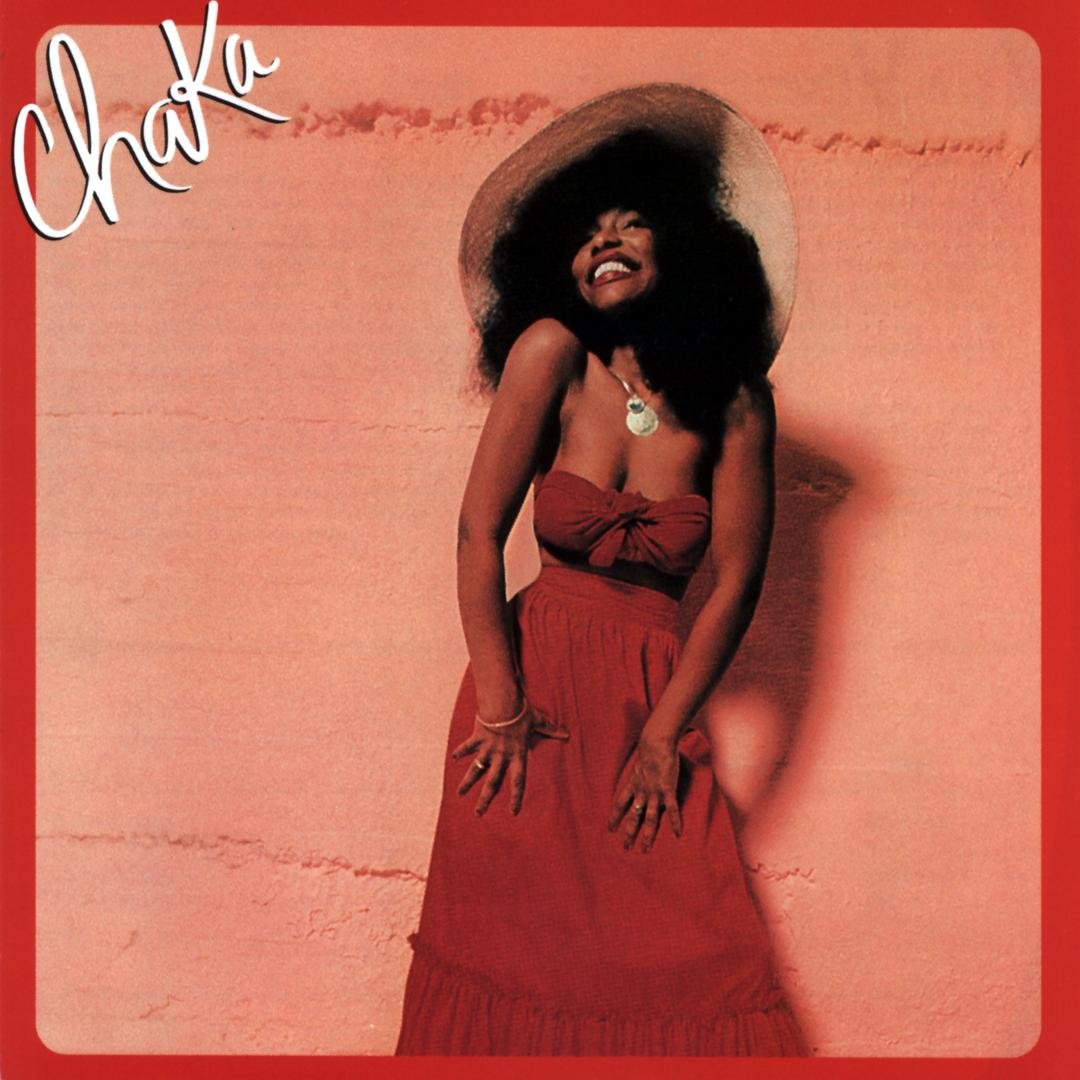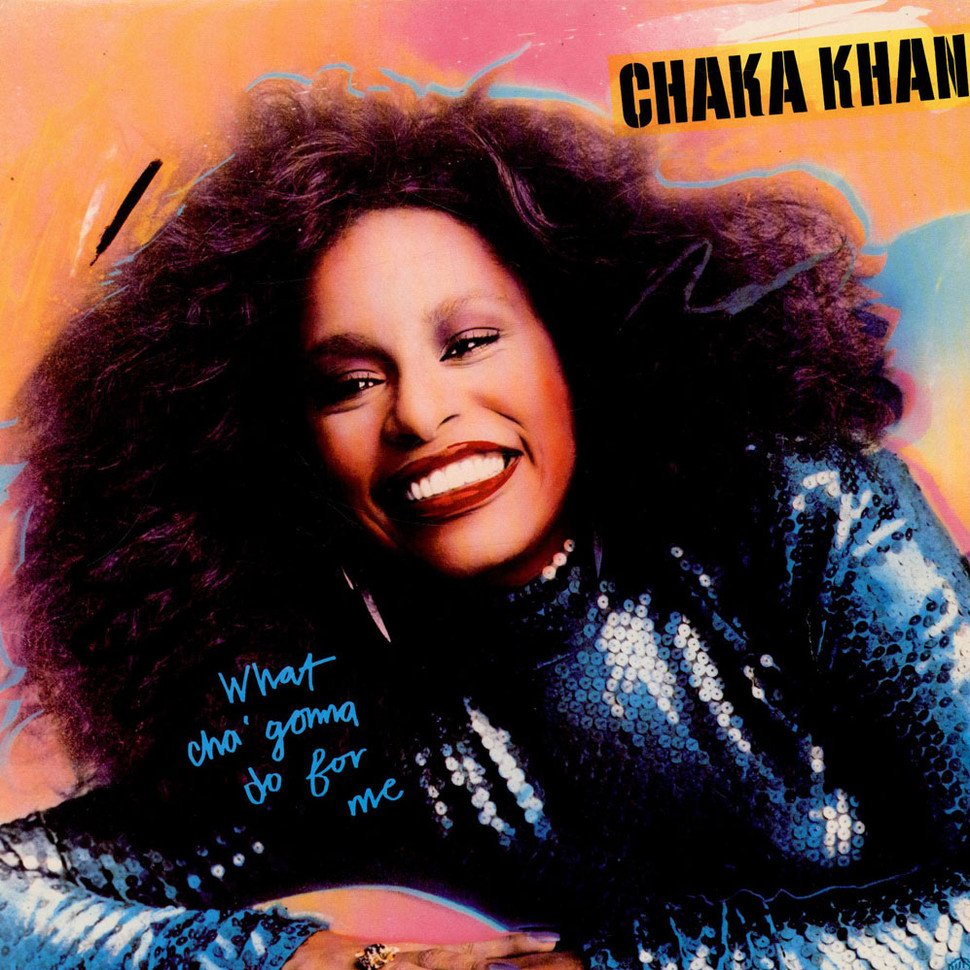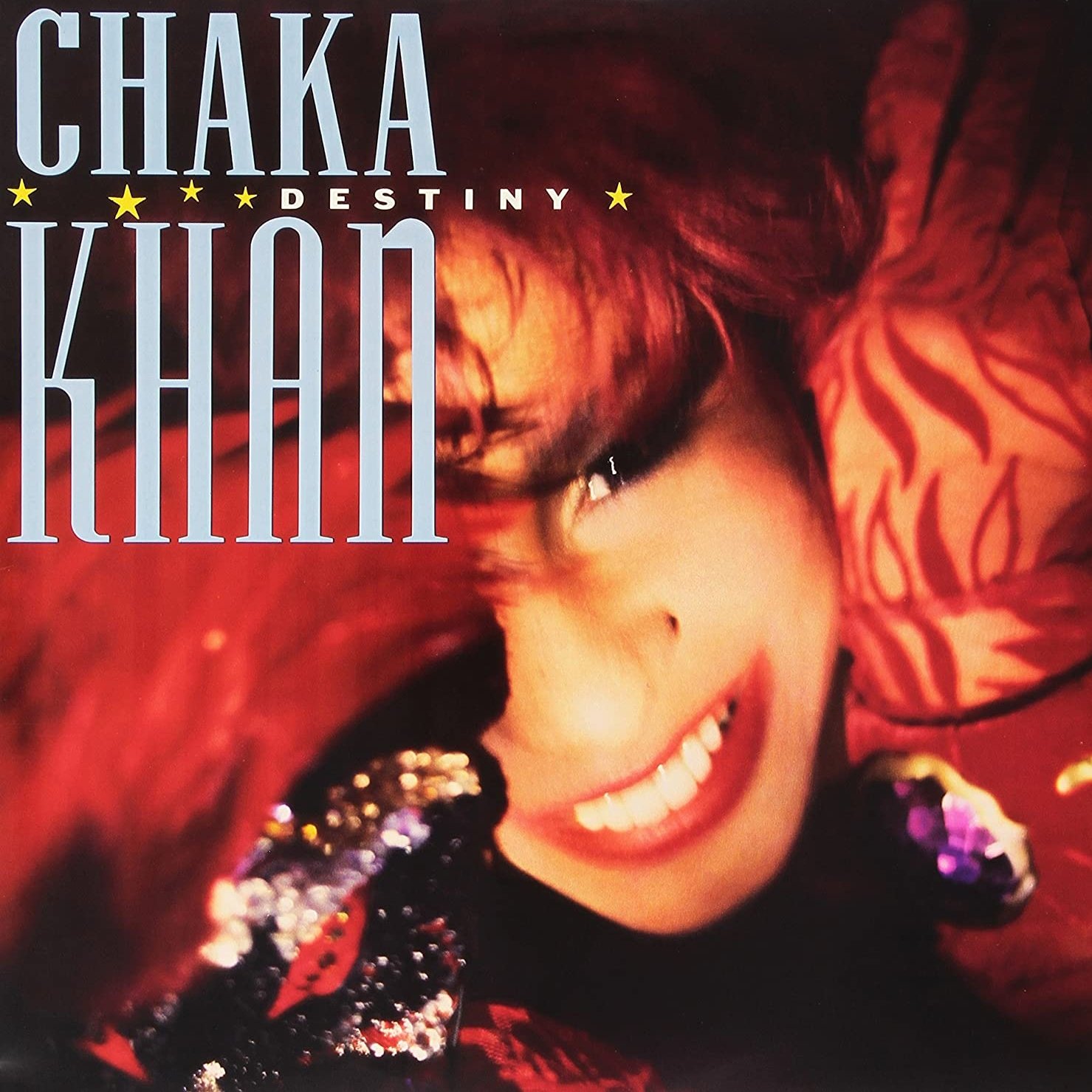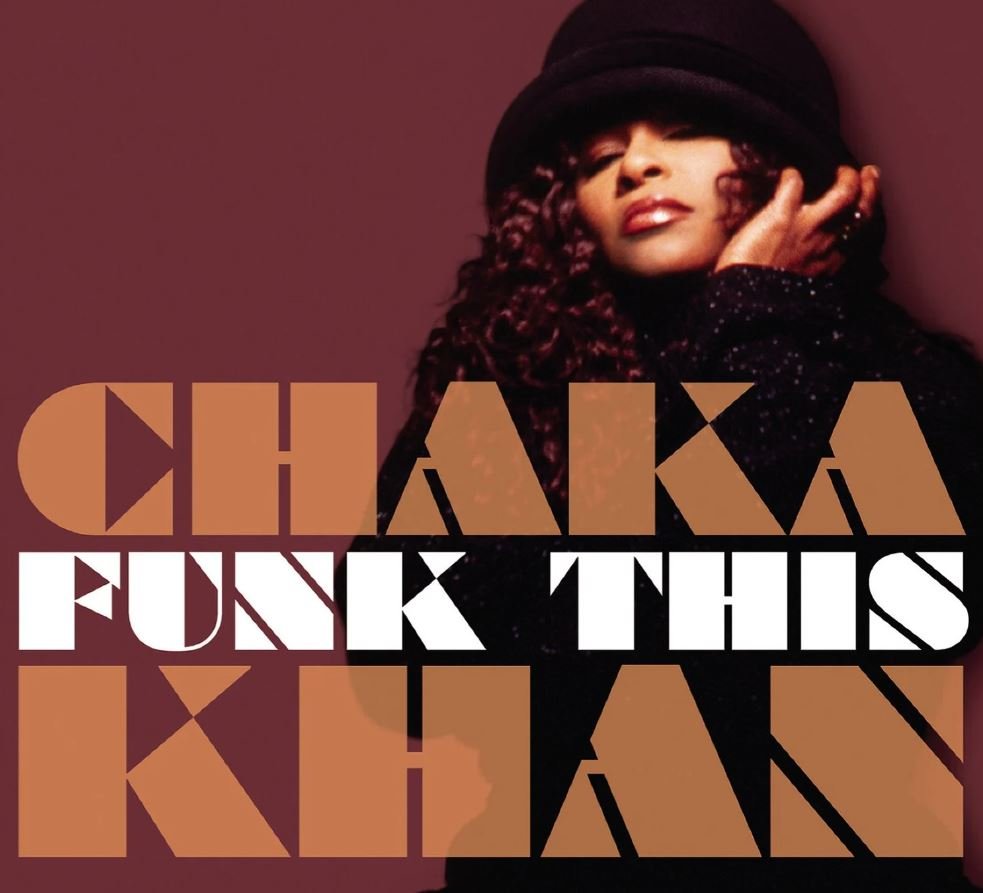Happy 35th Anniversary to Chaka Khan’s seventh studio album C.K., originally released November 22, 1988.
The ‘80s were hard on R&B music. Electronic synthesizers flooded the market and it took time before composers got proficient at funking with them. Stalwarts like Earth, Wind & Fire, Stevie Wonder, and Sly Stone flourished in the analog wilderness of the ‘70s, but faced creative obstacles in the ensuing decade.
However, funk-reared diva and songsmith Chaka Khan fared quite well in the first half with I Feel for You (1984) adding jet fuel to her career. But eventually technical blight caught up with her as the kaleidoscopic Destiny (1986) missed its target, dazzling musical maneuvers notwithstanding. She seemed wary of singing just to drive sales, so she stopped steering.
“I [picked the songs] sort of,” Khan leveled with Donnie Simpson during a Video Soul appearance in 1992. “I didn’t really care much. I mean, I would half-listen to a song and say, ‘Okay. That’s cool.’ And then I would wait ‘til Arif [Mardin] or whoever put the track together and then… it was done.” Perhaps that’s how C.K. became a hodgepodge of plinky soul-pop and urban AC filler that somewhat lost its way before succeeding in a most unexpected place.
Bear in mind that, like Destiny, C.K.’s underperformance overlapped Khan serving as a jewel in others’ crowns. Her “I’ll Be Good To You” duet with Ray Charles for Quincy Jones’ Back on the Block (1989) made #1 on both the U.S. R&B and Dance charts. Meanwhile, C.K. stalled at #17 on the U.S. R&B chart, and #125 on the U.S. Billboard 200. Multiple factors prevented better reception, but one was particularly notable. Longtime producer Arif Mardin was missing from C.K.—a first for any Khan solo disc.
“I’m jealous. I’m mad that he got so popular,” Khan protested in a Los Angeles Times interview that predicted Mardin’s exit. “All those great tracks he produced for me turned everybody on. For a long time, he had lots of time for me. He could do all the studio work. Now he’s too busy to spend that much time with me.”
In his absence, Khan realigned with Russ Titelman who helmed ex-group Rufus’ smash “Ain’t Nobody” from Live—Stompin’ At The Savoy (1983). As a producer, Titelman touches all ten tracks of C.K., joined in spots by Chris Jasper (of The Isley Brothers), David Frank (of The System) who co-wrote her U.S. Dance #1 “This is My Night,” and at long last, Khan and Prince—who, despite being linked by “I Feel for You,” had never recorded together before.
If anyone had an idea where music was headed, they weren’t concerned with meeting it there. There’s no cutting edge hip-hop, New Jack Swing, or club fusion here. Songs were tracked, then whatever happened happened. “It’s My Party,” an audio piña colada complete with umbrella, was issued as the lead single, because—meh—why not?
Listen to the Album:
The tune is non-threatening overall until “The man you’re talking to is not yours, he’s mine” gets followed by “Hear what I’m saying / before I stop the music playing” and finally “It’s my party! / I’ll start it, I’ll end it!” The lightweight drama makes this steel pan and key brass festival fun. Co-writer Cecil Womack cameos for guitar work and some old school bluesy adlibs. The cut is served by Khan being the fiery Aries she is; it wouldn’t be the only time she was famously outspoken about stopping a party.
Second single “Baby Me” was acceptable enough, albeit fairly dated for Black radio in 1988. And it’s uncharacteristically thin. Thumping its side might have yielded a pleasant sound. “It’s My Party” and “Baby Me” impressively managed respective #5 and #12 U.S. R&B chart entries stateside.
Only the former got video promotion and Khan participated only minimally. “I don't enjoy shooting videos at all,” Khan explained to the Washington Post. “I'm not an actress, I'm a singer, and I don't care for that camera trip and being seen. So I just do it and get it over with.” By the third single “Soul Talkin’” featuring Bobby McFerrin and lyricist Brenda Russell, Warner was hedging its bets to back it with a remix of “I’m Every Woman” from the salvage attempt Life is a Dance: The Remix Project (1989).
Apart from production languor, the songcraft does Khan no favors. Even promising tunes suffer from MIDI-instruments that lack presence. Among the less effective material, Jasper’s “Make It Last” is a jaunty but rather plastic ditty. Like canned soup or a frozen dinner, it’s edible, but you’re unlikely to specifically crave it. She usually attacks her own compositions with more passion, but “Where Are You Tonite” seems to bore her. Her trademark background arrangement starts moving in the native, instinctual way of “What Am I Missing,” “Heed the Warning,” or “Some Love,” but stops short. Vacant and inexact in her execution, one wonders whether she was “affected.”
Candor becomes Chaka Khan. In her history of addiction, she has admitted much and hidden very little. It’s apropos she should be drawn to record such an oddity as “Sticky Wicked.” The premise piques interest. Khan meets Prince and Miles Davis? Enthralling! But then confusion sets in when the loose, avant garde, bebop jam session finds Khan rapping about a mother who’s so high she can’t remember her daughter’s name. It’s so strange, it starts to become captivating again.
The premise is unofficially revisited and resolved when Prince and Khan reunited for Come 2 My House (1998) featuring “Don’t Talk 2 Strangers,” about a mother more lucid, present, and wise than ever. Prince penned both this and “Sticky Wicked” himself, but they certainly seem to have biographical parallels for Khan.
Enjoying this article? Click/tap on the album covers to explore more about Chaka Khan:
By comparison, the other Prince piece “Eternity” sounds convincingly purple sans any production input from the man from Minneapolis at all. Titelman and Frank succeed in nudging Khan toward a fairly satisfying performance. She also turns in a competent “Signed, Sealed, Delivered (I’m Yours)” with Stevie Wonder himself on harmonica. It has a Destiny-esque quality, not unlike her Scritti Politti collaboration “Love of a Lifetime” with its stabby key-bass.
If one comes in with expectations sourced from Rufus platters, street corner breakdancing to “I Feel for You,” or belting “I’m Every Woman” into an afro pick, disappointment will ensue. But something saves it: Khan’s failsafe jazz chops.
“C.K. never came close to being my best album, but it will always be the one with a very special place in my heart,” she wrote in Chaka! Through the Fire (2003). “This is because on it I did ‘I’ll Be Around’ and ‘End of a Love Affair,’ two songs I heard so often as a child—every time Gramma Maude played [Billie Holiday’s] Lady in Satin album.”
Khan comes alive for “End of a Love Affair.” The live musicianship energizes her. The lyrics connect and resonate (“So I smoke a little too much / And I drink a little too much”). The gorgeous orchestral framing is faithful and served well by the surprise of George Benson’s tandem guitar-vocal solo. Amidst the post-boogie and dance-funk hoopla of her ‘80s work, it’s easy to forget her mastery displayed on Echoes of an Era (1982) with Chick Corea, Lenny White, Stanley Clarke and others.
Electro-forged tunes aren’t where she thrives. C.K. should have committed fully to jazz and “I’ll Be Around,” mining Holiday for a second time, proves it. In her autobiography, Khan remarked that Davis played horn on “I’ll Be Around,” and then “a few years later, Miles wasn’t.” Her refined and resilient next release The Woman I Am (1992) would be dedicated to her friend’s memory.
Along with these jazz standards, C.K. easily qualifies as a covers record with several cuts first done by their writers: “Signed, Sealed, Delivered” (Stevie Wonder), “It’s My Party” (Womack & Womack), and “Baby Me” (Holly Knight). Sheena Easton got first crack at “Eternity,” but neither it nor its parent album No Sound but a Heart (1987) could secure wider international release due to record label mishaps. And by 1993, Brenda Russell would re-record and title a new release after “Soul Talkin’.”
Flowers didn’t spring from C.K., but that doesn’t mean its soil wasn’t fertile and rich. The curtain definitely came up on it before all players were in their proper places, and yet some capital performances were rendered under less-than-ideal circumstances—a feat that only a talent like Khan can pull off.
Listen:





